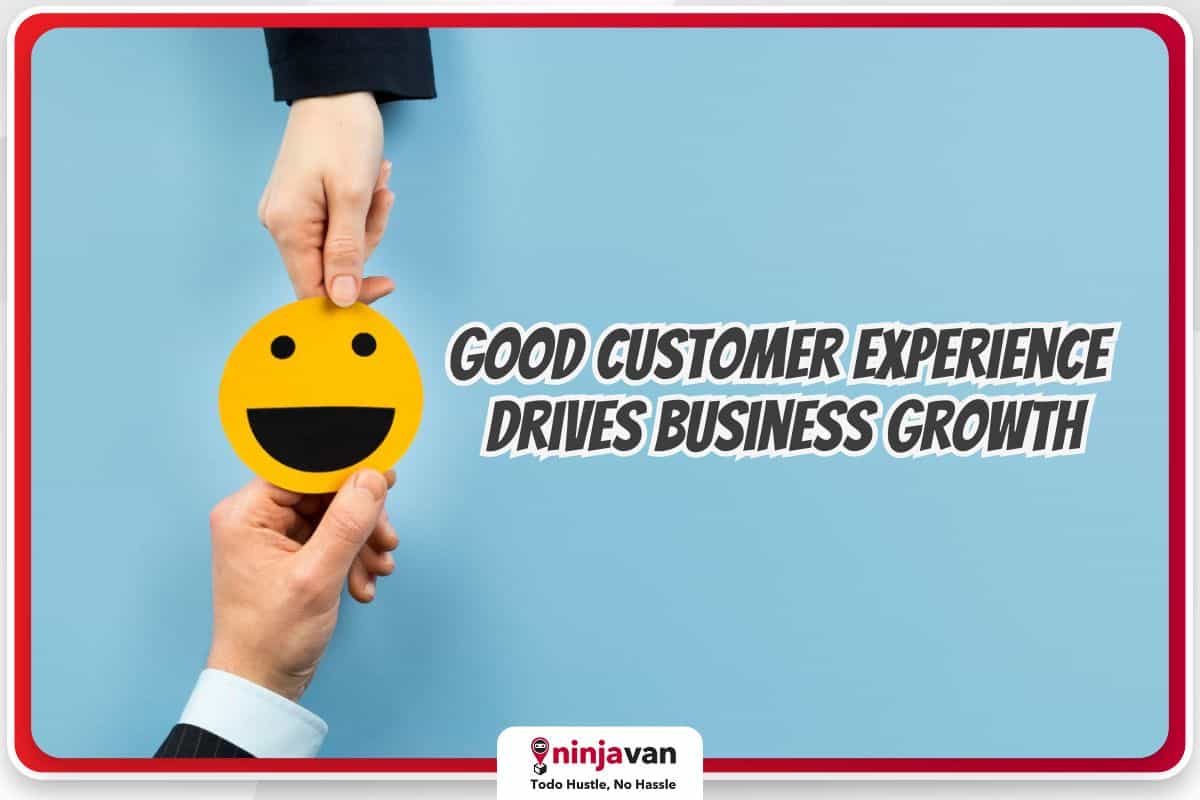Getting your products from your supplier to your customer can be a multi-step process that costs you time, money, labor and other resources. To make the most profits from your business, you’ll need to find the most efficient way to make this process happen.
Which is why, even for small businesses like yours, supply chain management and operations management are crucial processes that can maximize your resources.
Decisions like DIY-ing your entire process or outsourcing your ecommerce fulfillment solutions can affect your bottom line.
here’s what you should know about supply chain management and how to improve your operations.
Also read: Why Outsource Your Ecommerce Fulfillment to 3PLs
What Is Supply Chain Management?

Supply chain management (SCM) involves overseeing how your raw materials and goods flow and turn into the product that reaches your customer base.
It also involves analyzing your resources and processes, and finding ways to minimize efforts and unnecessary costs that add to your operational expenses.
For example, let’s say that Nina, Alma, and Tessa are all small business owners. Nina creates customized bento cakes, Alma does live selling with ukay-ukay bales, and Tessa runs a Shopee store selling viral home improvement products. While they have very different ecommerce businesses, all three can benefit from implementing supply chain management into their operations:
- By measuring her ingredients carefully, Nina can be consistent with the quality of her cakes and avoid wasting raw materials.
- Alma notices that her ukay-ukay supplier has a lot of poor-quality pieces, so she sources her products from a supplier with better-quality goods.
- And Tessa finds she doesn’t have the space and time to store and fulfill orders from her home, so she considers third-party logistics fulfillment to streamline her operations and deliver her products faster.
Infographic: How Does 3PL Work?
How Does Supply Chain Management Work?
Implementing a successful supply chain means making the process from production to delivery as efficient and as low-cost as possible. To do that, you can take a look at the four main parts of an SCM plan and find ways to make your operations more efficient.

Planning
In this stage, you must look at available data and market trends. It sounds a little technical, but it can be as simple as looking at Home Buddies or any popular groups and seeing which items are trending as the next budol item.
From there, you can estimate how much you can sell based on your own experience and how many people are looking for options.
Sourcing
Once you know what to sell, you can start shopping around for vendors to supply your raw materials. If you make custom t-shirts, this could mean finding vendors online or in Divisoria that sell plain t-shirts.
And if you resell items on Shopee or Lazada, it can mean finding business-to-business sellers on platforms like Alibaba.
However, remember that price shouldn’t be your only criteria for choosing your vendors. Factors like raw material quality, on-time deliveries, and flexibility are non-monetary factors that can affect your business.

Manufacturing
At this point, your raw materials are turned into the actual product. The manufacturing stage isn’t just limited to factory-made items since this step also includes steps like assembly, testing, quality control and packaging.
Avoiding inconsistent products, wasted raw materials and inefficient packaging are some of the ways SCM allow small businesses to trim the fat off their operations.
Delivering
Small business owners now have to handle getting their products to their customers in a timely and cost-effective way. Filipino SMEs have two options: in-house shipping or working with a reliable logistics partner.
Some choose an in-house delivery rider, but this limits their customer base to those in nearby cities. There are also risks like the rider calling in sick or the vehicle being damaged, which can delay delivery.
Logistics partners, on the other hand, have the means for a wider range and more reliable resources to ensure fast and safe delivery.
Here’s how to choose the Right Logistics Partner to Make Your Hustle Better
Why Is Supply Chain Management Important?

Small business owners that implement SCM into their operations can benefit from the following:
- Reduce Operational Costs. SCM trims the fat off your operations and finds areas where you can cut costs without sacrificing quality or customer satisfaction.
- Reduce Waste. SCM allows you to take a look into the raw materials you’re using for your business and help you assess if you’re making the most out of these materials.
- Improve Product Quality. You can make your manufacturing process more consistent to deliver the same product quality that your customers expect.
- Boost Your Brand. When you can provide better product quality, competitive prices, and faster delivery, you can improve customer satisfaction and how Filipinos see your brand.
- Futureproof Your Business. Supply chains today need to be agile to adapt to market trends, ecommerce laws, and more. If the markets change tomorrow and cause issues with one of your suppliers, can you reconfigure your entire supply chain to minimize losses?
How to Choose Your Supply Chain Logistics Partner

your business into the future.
SCM partners can refer to several people in your supply chain: from your vendors to those who manufacture your products, your third-party logistics supplier, and the delivery drivers who get your products to your customers.
While you can control most of your SCM partners, delivery can be one of the most crucial steps. Because you have little control over your products once they’ve been shipped, you need to work with a supply chain logistics partner you can trust.
Some of the traits you can spot in your logistics partner should include:
- Reliability. Check online reviews from other small business owners and see how their team handles queries for delayed shipping. They’re the logistics team with years of experience in providing fast deliveries. If they have a record of parcels arriving damaged, delayed shipping, or packages going missing entirely, that’s a major red flag.
- Nationwide and International Solutions. You could be limiting your business’ potential by working with delivery solutions that only cater to nearby areas. If your current logistics partner is the only reason you’re not expanding your growth, consider shopping for cost-effective international solutions.
- Technology Integration. The future is digital, so your logistics partner should lay the groundwork for integrating technological solutions into their operations. To make their services more efficient, they use the latest tech to sort packages, provide tracking, and protect client data.
Build a strong supply chain management and operations

Supply chain management isn’t just for the big players in ecommerce – even the small business owners can benefit from implementing leaner operational management strategies.
With plenty of supply chain management and operation solutions available, you can take steps to assess your business and find areas where you can improve.
If you need help with your fulfillment, Ninja Van offers all-in-one storage, order and inventory management services to your business.
Save on manpower, warehouse storage rental, and other costs with Ninja Van’s Fulfillment and Warehousing solutions.
Supply chain management FAQs
How can supply chain management help in reducing operational costs for small businesses?
SCM helps reduce operational costs by identifying inefficiencies, streamlining processes, optimizing resource utilization, and implementing cost-effective logistics solutions, thereby improving overall profitability.
How can I find areas to improve my SCM as a small business owner?
1. Analyze your current processes to identify potential cost-cutting measures.
2. Assess raw material usage to minimize waste.
3. Evaluate your manufacturing process for consistency and quality control.
How do I choose the right logistics partner for my ecommerce business?
When choosing a logistics partner, prioritize reliability, nationwide and international delivery capabilities, and technology integration. Assess capabilities and ensure compatibility with your business needs.
What are the advantages of using a logistics partner?
1. Wider delivery reach compared to in-house solutions.
2. More reliable resources for faster and safer deliveries.
3. Reduced risk of delays or damage due to rider issues.
How can Ninja Van assist my ecommerce business in improving supply chain management and operations?
Ninja Van offers comprehensive fulfillment and warehousing solutions, including storage, order management, and inventory tracking services. By partnering with Ninja Van, you can save on manpower, warehouse rental costs, and streamline your entire supply chain process for increased efficiency and profitability.
More helpful articles for you:
Choosing A Warehouse Logistics Partner 101
Expand Your Business and Start Shipping Abroad






